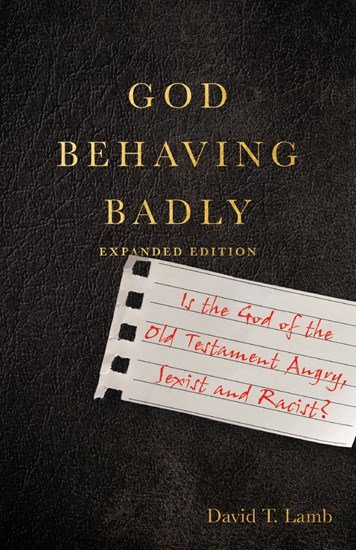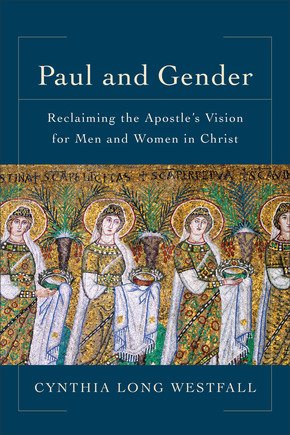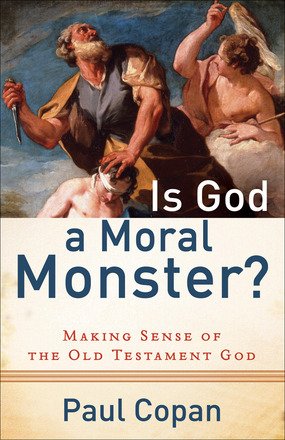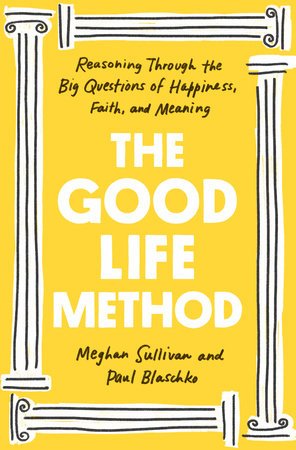Colossians

Recommended Resources

by David T. Lamb
God has a bad reputation. Many think of God as wrathful and angry, smiting people right and left for no apparent reason. The Old Testament in particular seems at times to portray God as capricious and malevolent, wiping out armies and nations, punishing enemies with extreme prejudice.
But wait. The story is more complicated than that. Alongside troubling passages of God's punishment and judgment are pictures of God's love, forgiveness, goodness, and slowness to anger. How do we make sense of the seeming contradiction? Can God be trusted or not?
David Lamb unpacks the complexity of the Old Testament to explore the character of God. He provides historical and cultural background to shed light on problematic passages and bring underlying themes to the fore. Without minimizing the sometimes harsh realities of the biblical record, Lamb assembles an overall portrait that gives coherence to our understanding of God in both the Old and New Testaments. This expanded edition includes an updated preface, afterword, and appendix addressing the story of Noah and the flood.
By John Cook
There is a disagreement among evangelical over what the Bible says about proper roles for men and women. Some say women must be subordinated to men and not overall leaders; other think the Bible doesn’t limit women in leadership or in the home. This eight prart series will explore and explain what the scripture says about gender roles in Church, home and society.
By Alice Mathews
Most women in the church don't aspire to "lord it" over men, nor do they want to scramble for position. Instead, they want to be accepted as full participants in God's work, sharing in kingdom tasks in ways that use their gifts appropriately.
In Gender Roles and the People of God, author, radio host, and professor at Gordon-Conwell Theological Seminary Alice Mathews surveys the roles women have played in the Bible and throughout church history, demonstrating both the inspiring contributions of women and the many hurdles that have been placed in their path. Along the way, she investigates the difficult passages often used to preclude women from certain areas of service, pointing to better and more faithful understandings of those verses.
Encouraging and hopeful, Mathews aims for an "egalitarian complementarity" in which men and women use all of their gifts in the church together, in partnership, for the glory of God.

General Editors: Ronald W. Pierce, Rebecca Merrill Groothuis and Contributing Editor Gordon D. Fee
Discussions surrounding the roles of men and women--whether in the church, the home or society at large--never seem to end, often generating more heat than light. Such debate is still important, though, because this issue directly affects every member of Christ's body. What we believe the Bible teaches on these matters shapes nearly all we do in the church. In addition, these questions deserve further thought and reflection because neither side has won the day.
In an effort to further discussion, Ronald W. Pierce and Rebecca Merrill Groothuis (general editors), with the aid of Gordon D. Fee (contributing editor), have assembled a distinguished array of twenty-six evangelical scholars firmly committed to the authority of Scripture to explore the whole range of issues--historical, biblical, theological, hermeneutical and practical. While dispelling many of the myths surrounding biblical equality, they offer a sound, reasoned case that affirms the complementarity of the sexes without requiring a hierarchy of roles.
Contributors include Ruth A. Tucker, Janette Hassey, Richard S. Hess, Linda L. Belleville, Amda Besangon Spencer, Craig S. Keener, I. Howard Marshall, Peter H. Davids, Walter L. Liefeld, Stanley J. Grenz, Kevin Giles, Roger Nicole, William J. Webb, Sulia Mason, Karen Mason, Joan Burgess Winfrey, Judith K. Balswick, Jack O. Balswick, Cynthia Neal Kimball, Mimi Haddad, Alvera Micklesen, R. K. McGregor Wright and Alice P. Mathews.Here is a fresh, positive defense of biblical equality that is at once scholarly and practical, irenic and yet spirited, up-to-date and cognizant of opposing positions.
By Craig S Keener
Paul's letters stand at the center of the dispute over women, the church, and the home, with each side championing passages from the Apostle. Now, in a challenging new attempt to wrestle with these thorny texts, Craig Keener delves as deeply into the world of Paul and the apostles as anyone thus far. Acknowledging that we must take the biblical text seriously, and recognizing that Paul's letters arose in a specific time and place for a specific purpose, Keener mines the historical, lexical, cultural, and exegetical details behind Paul's words about women in the home and ministry to give us one of the most insightful expositions of the key Pauline passages in years.
By Cynthia Long Westfall
In this volume, respected New Testament scholar Cynthia Long Westfall offers a coherent Pauline theology of gender. Westfall interprets passages on women and men together and places those passages in the context of the Pauline corpus as a whole. Her inclusion of the entire Pauline canon enables her to address the issues effectively, and she reads the texts in light of their own claims of authorship, recipient, and circumstances. She also gleans new insights by making sense of the passages in the context of the Greco-Roman culture.
Paul and Gender includes fresh perspectives on the most controverted texts, offering viable alternatives for some notorious interpretive problems in certain Pauline passages. The author reframes gender issues in a way that stimulates thinking, promotes discussion, and moves the conversation forward. As Westfall explores the significance of Paul's teaching on both genders, she seeks to support and equip males and females to serve in their area of gifting, regardless of social status, race, or gender.
This book is a call for all who study Paul and gender to learn to distinguish between their assumptions and the presuppositions they use to make sense of the texts. It will be of use to New Testament scholars, professors and students in courses on Paul, and pastors and church leaders.
By Paul Copan
Is the God of the Old Testament nothing but a bully, a murderer, and an oppressor?
Many today--even within the church--seem to think so. How are Christians to respond to such accusations? And how are we to reconcile the seemingly disconnected natures of God portrayed in the two testaments?
In this timely and readable book, apologist Paul Copan takes on some of the most vexing accusations of our time, including:
God is arrogant and jealous
God punishes people too harshly
God is guilty of ethnic cleansing
God oppresses women
God endorses slavery
Christianity causes violence
Copan not only answers the critics, he also shows how to read both the Old and New Testaments faithfully, seeing an unchanging, righteous, and loving God in both.
By Timothy Keller
The question of why God would allow pain and suffering in the world has vexed believers and nonbelievers for millennia. Timothy Keller, whose books have sold millions of copies to both religious and secular readers, takes on this enduring issue and shows that there is meaning and reason behind our pain and suffering, making a forceful and ground-breaking case that this essential part of the human experience can be overcome only by understanding our relationship with God.
Walking with God through Pain and Suffering uses biblical wisdom and personal stories of overcoming adversity to bring a much-needed, fresh viewpoint to this important issue.
SEE LESS
By Meghan Sullivan and Paul Blaschko
Two Philosophers Ask and Answer the Big Questions About the Search for Faith and Happiness
For seekers of all stripes, philosophy is timeless self-care. Notre Dame philosophy professors Meghan Sullivan and Paul Blaschko have reinvigorated this tradition in their wildly popular and influential undergraduate course “God and the Good Life,” in which they wrestle with the big questions about how to live and what makes life meaningful.








The God of the Bible is emotional. Many Christians don't want to associate emotions with God. Emotions feel irrational, and the idea of God experiencing hate, anger, and jealousy can be confusing and problematic. And yet the Bible is full of stories where God expresses deep emotion. Christians are often left wondering how to reconcile the tension of an all-powerful God expressing seemingly uncontrollable feelings. If God is hateful and angry at humanity, is he a God worth believing in?
In The Emotions of God, biblical scholar David Lamb examines seven divine emotions—hate, anger, jealousy, sorrow, joy, compassion, and love—and argues that it is not only good that God is emotional but also that we as his image-bearers can express emotions in such a way that reflects his goodness to the world. With discussion questions and suggestions for application, Lamb challenges his readers to journey with him into a rich study of the stories surrounding God's emotions so that we might better know God and reflect the beauty of emotion to the world.